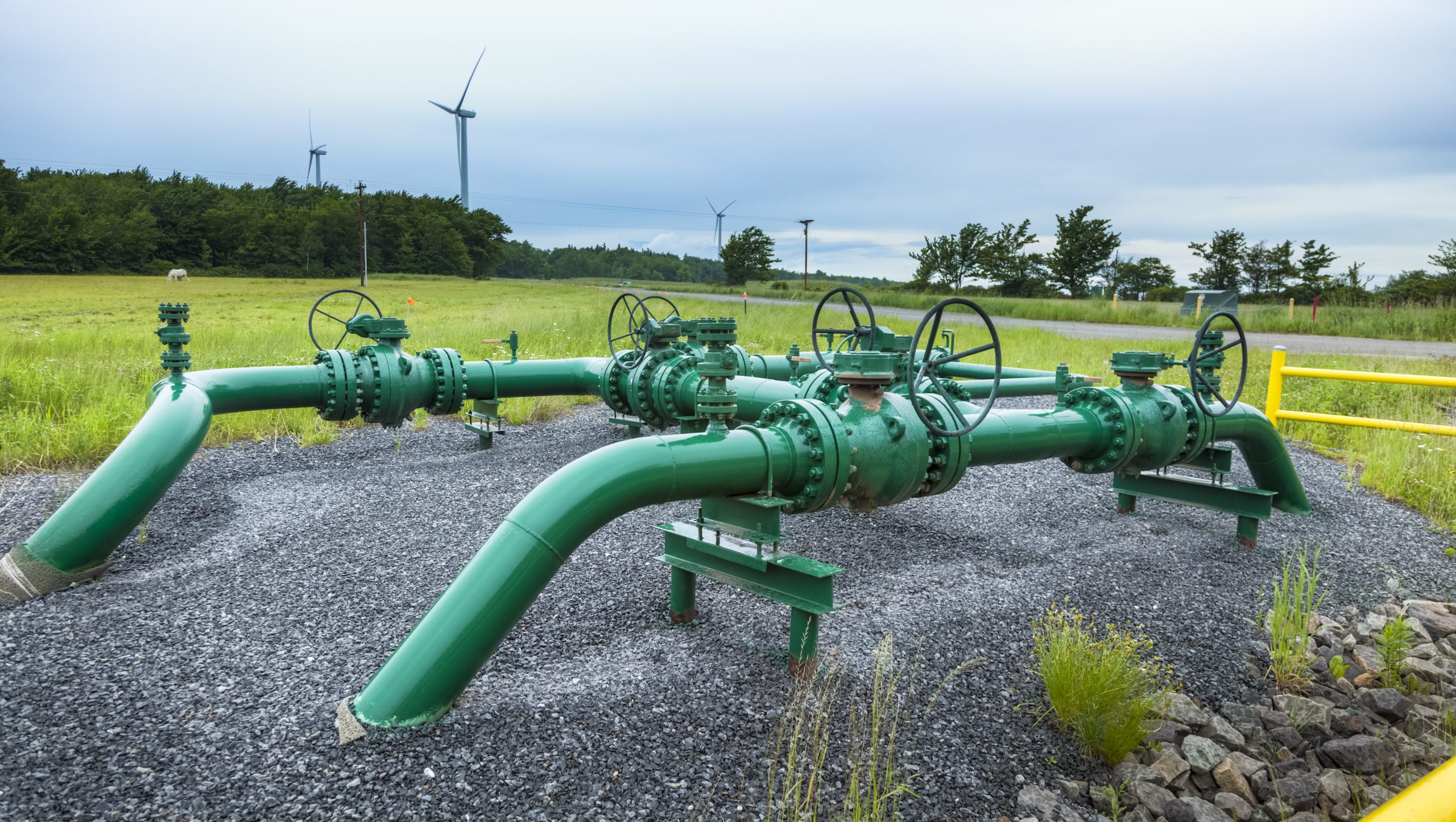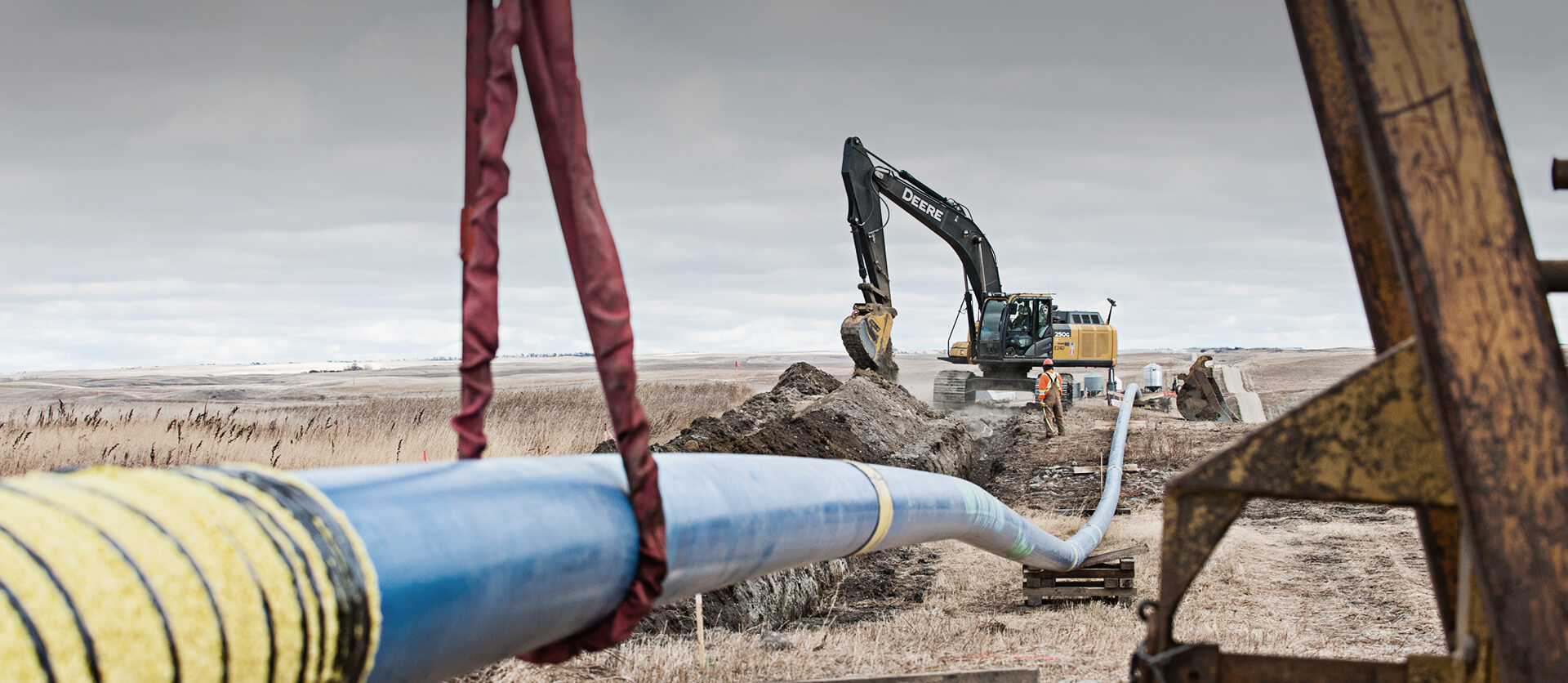Why Quality Pipeline Construction Services Are Essential for Long-Term Efficiency
Wiki Article
The Important Guide to Recognizing Pipeline Construction Services and Their Significance
Pipeline Construction services are basic to the transport of crucial sources such as water, gas, and oil. These services include careful planning and execution, sticking to rigorous security and ecological criteria. As the sector adapts to contemporary challenges, understanding its components and ramifications comes to be progressively important. What elements contribute to the expanding importance of these services in today's economic situation? The following sections will explore these critical facets.Summary of Pipeline Construction Services
Pipeline Construction solutions include a range of tasks important for the installation and upkeep of pipelines made use of to deliver various substances, consisting of oil, gas, and water. These solutions are crucial for assuring the safe and efficient motion of resources from one place to an additional. The process typically begins with comprehensive preparation and design, which takes into consideration regulative needs, environmental considerations, and logistical difficulties.Excavation and grading of the land are conducted to prepare the website for Pipeline setup once preparation is full. This is followed by the actual laying of the pipelines, which involves welding or signing up with areas together to create a constant circulation path. After setup, rigorous testing is carried out to assure honesty and safety. Maintenance services are likewise given to resolve any kind of issues that may emerge with time. In general, Pipeline Construction solutions play a critical duty in supporting infrastructure for energy and water distribution.
Secret Parts of Pipeline Construction
A successful Pipeline Construction job relies upon numerous key components that guarantee the risk-free and reliable installation of the Pipeline system. Detailed site assessments are vital, as they identify the geographical and ecological elements that may affect Construction. Next off, the option of appropriate products, such as pipelines and fittings, is vital for protecting sturdiness and compatibility with the moved compounds.Additionally, progressed Construction strategies, consisting of trenchless innovation and directional drilling, enhance performance and decrease ecological effect. Effective project monitoring is one more critical part, collaborating labor, devices, and timelines to satisfy project objectives.
Additionally, interaction among stakeholders, including engineers, service providers, and neighborhood authorities, warranties placement on job requirements and demands. Finally, complete top quality control procedures throughout the Construction process make sure compliance with market criteria and maximize the Pipeline's functional life expectancy. Jointly, these components form the foundation of an effective Pipeline Construction project.
Safety And Security Standards and Laws in Pipeline Construction

Regulative bodies, such as the Occupational Safety And Security and Health Administration (OSHA) and the Pipeline and Hazardous Products Security Management (PHMSA), set forth certain needs that control Construction methods. These consist of protocols for equipment use, worker training, and emergency action procedures. By carrying out these requirements, Construction firms not just shield their staff members however likewise safe public depend on. Inevitably, strenuous precaution contribute to the long-term success of Pipeline projects, ensuring they satisfy both ecological and functional assumptions.
Environmental Considerations in Pipeline Projects

Environmental factors to consider are indispensable to the preparation and execution of Pipeline projects. These projects must evaluate potential influence on ecological communities, water sources, and local wildlife. Performing complete environmental influence evaluations (EIAs) is crucial, enabling stakeholders to identify and minimize dangers before Construction starts.
Securing sensitive locations, such as environments and wetlands, often calls for applying certain design functions or alternative directing to reduce disruption. In addition, Pipeline operators are charged with developing methods for stopping spills and leaks, which can have destructive results on the atmosphere.
Involvement with regional communities is necessary, as public issues can bring about project alterations that enhance environmental management. Conformity with regulations set by ecological agencies ensures that projects satisfy sustainability criteria, fostering a balance between framework demands and ecological preservation. Inevitably, attending to environmental factors to consider not only safeguards nature find more however additionally advertises neighborhood trust fund and project feasibility.
The Duty of Technology in Pipeline Construction
Technology plays a vital role in modern Pipeline Construction, improving effectiveness and precision. Advanced evaluating strategies allow for accurate planning and execution, lessening ecological effect and task hold-ups. Furthermore, the combination of automation and robotics simplifies procedures, lowering labor costs and boosting safety and security on Construction websites.Advanced Evaluating Strategies
Advanced evaluating techniques play an important role in the successful execution of Pipeline Construction tasks. These approaches take advantage of sophisticated technology to guarantee precise mapping and evaluation of the surface where pipes will be mounted. Strategies such as Geographic Details Equipment (GIS), LiDAR (Light Detection and Ranging), and 3D modeling allow engineers to analyze the landscape and picture, determining potential barriers and ecological issues. By using these sophisticated tools, groups can improve accuracy ready and alignment, substantially minimizing the danger of mistakes throughout Construction. Additionally, real-time data collection allows for prompt modifications and informed decision-making throughout the task lifecycle. Ultimately, these checking developments add to enhanced efficiency, safety and security, and sustainability in Pipeline Construction efforts.Automation and Robotics

Economic Effect of Pipeline Framework
Pipeline facilities plays a vital duty in promoting and shaping local economies profession. By providing a reliable ways of transferring oil, gas, and various other commodities, pipelines lower transportation expenses and enhance supply chain effectiveness. This framework draws in financial investment, stimulates job development, and this content cultivates economic growth in surrounding locations.Additionally, the Construction and maintenance of pipelines contribute substantially to local economic climates, developing countless employment possibilities in various markets, from engineering to labor. The influx of jobs typically results in increased investing in local services, even more bolstering financial task.
Additionally, pipelines enhance energy protection by ensuring a secure supply of resources, which is crucial for commercial procedures and property requirements. As areas end up being interconnected with Pipeline networks, they get to wider markets, enhancing competitiveness and economic strength. The economic impact of Pipeline infrastructure is complex, affecting both prompt neighborhood economic situations and wider regional growth.
Future Fads in Pipeline Construction Solutions
The future of Pipeline Construction solutions is progressing in reaction to technical innovations, regulative changes, and expanding ecological factors to consider. Developments such as drones and robotics are enhancing evaluation and maintenance processes, enhancing safety and security and effectiveness. Automation is positioned to minimize labor costs and raise accuracy in Construction operations. Additionally, the boosting emphasis on sustainability is motivating business to take on eco-friendly products and practices, straightening with international efforts to decrease carbon footprints.Regulative structures are additionally adjusting to deal with environmental impacts, promoting better openness and accountability in Pipeline tasks. Moreover, the assimilation of wise modern technologies, including real-time tracking systems, is expected to enhance the integrity and efficiency of Pipeline networks. As energy demands change towards renewable sources, Pipeline Construction solutions will likely see a surge in projects associated with biofuels and hydrogen transport. Generally, these fads indicate a transformative period for the Pipeline Construction market, concentrated on development and sustainability.
Regularly Asked Inquiries
What Kinds of Pipelines Are Typically Built?
Different kinds of pipes are typically created, consisting of oil, sewer, water, and gas pipelines - Pipeline Construction Services. Each serves distinct purposes, assisting in the transportation of essential sources throughout areas while sticking to security and ecological guidelinesJust how Long Does a Common Pipeline Project Take?
The duration of a typical Pipeline project varies greatly, commonly varying from numerous months to a couple of years. Aspects influencing this timeline include project intricacy, governing authorizations, and environmental considerations that should be dealt with.Who Manages Pipeline Construction Firms?
Pipeline Construction firms are regulated by numerous government, state, and regional agencies, consisting of the Pipeline and Hazardous Products Security Administration (PHMSA) and state utility payments, making sure compliance with safety and security and ecological criteria throughout the Construction procedure.What Prevail Materials Utilized in Pipeline Construction?
Usual products utilized in Pipeline Construction include polyethylene, steel, and pvc. Each material supplies distinct advantages such as resistance, resilience, and adaptability to rust, making them suitable for numerous applications in carrying gases and fluids.
Exactly How Are Pipeline Construction Expenses Estimated?
Pipeline Construction costs are estimated by analyzing factors such as material expenditures, labor prices, job complexity, environmental considerations, and regulatory needs (Pipeline Construction Services). Exact price evaluation assurances efficient budgeting and project planning throughout the Construction procedurePipeline Construction solutions include a range of tasks essential for the installation and upkeep of pipelines used to transport numerous compounds, including water, gas, and oil. An effective Pipeline Construction job relies on numerous crucial components that assure the effective and risk-free installment of the Pipeline system. Advanced checking techniques play a crucial function in description the effective implementation of Pipeline Construction projects. Numerous types of pipes are frequently constructed, consisting of oil, water, sewer, and gas pipelines. Pipeline Construction prices are estimated by assessing aspects such as material costs, labor prices, job complexity, ecological considerations, and regulative demands.
Report this wiki page